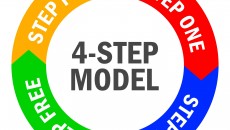Everyone is unique. Unique in their communication, style, thinking and even leadership.
I am sure you have heard the word leadership time and time again. In fact some of you must be exhausted hearing the same thing about leadership again and again. Sometimes I wonder how do you turn this record off.
My friend (well a friend in my mind) Tony Robbins has a very unique way of defining leadership. I completely resonate with his definition and when I show people the video of his definition, I notice a shift in some of the people in the room.
The book definition is simply “the action of leading a group of people or an organization, or the ability to do this.” Another one is “a process of social influence in which one person can enlist the aid and support of others in the accomplishment of a common task.” And here is a final one “leadership is not management or directing, it is the ability to inspire or influence others towards the leader’s goal.”
All of these definitions are great and have substance. Yet, Tony takes this to another level. In one of his videos you learn from him that being a leader is being a servant. He goes on to explain that a leader is a hero and the original meaning of hero equates to being a slave.
Tony shares with the audience that being a hero actually means being a servant to something bigger than one’s self, and focusing on the greater good, as opposed to just your needs to reap rewards for yourself. Then there is Chris Lowney, who writes in his book Heroic Leadership, “If you want your team to perform heroically, be a hero yourself.”
In the business world, I am not aware of such a hero’s existence. Maybe you are aware of one. Although, when I read history books I do tend to see such heroes portrayed with great compassion and the willingness to serve others. Yet, none of them relate to the business world from my perception. Some may even define these history heroes as martyrs.
Rather than looking upon another to be our leader or our hero, we need to take that bold step into self-leadership. It is hard to lead others if you are unable to lead yourself. And this certainly applies in work, business and in your personal life.
Robin Sharma puts it in the context of the business world in a very eloquent manner “Every single person who works within a business, for example, owns the responsibility of showing leadership at their craft. Every single teammate is the CEO of their own small business unit called their job.”
You could say self-leadership is to know thyself. In other words, it means the ability to influence yourself at all levels (which includes emotional, mental, physical, spiritual and financial) in a positive and productive manner for the great good.
Bryant & Kazan define self-leadership as the practice of intentionally influencing your thinking, feeling and behaviors to achieve your objective.
Leadership starts and ends with you. In essence, leadership is simply about you.





